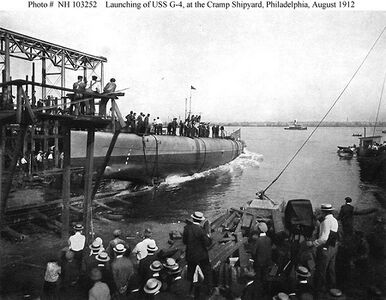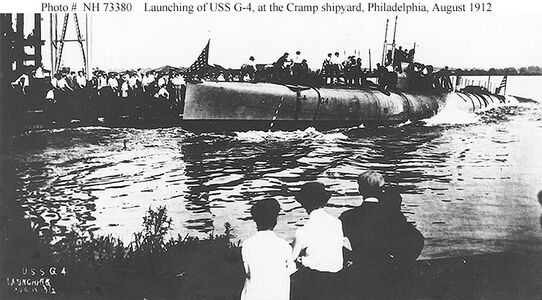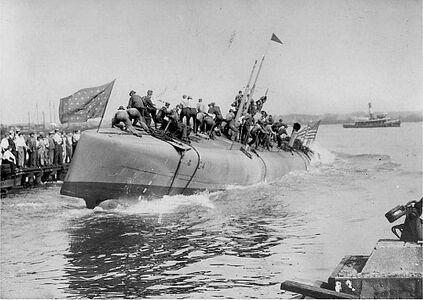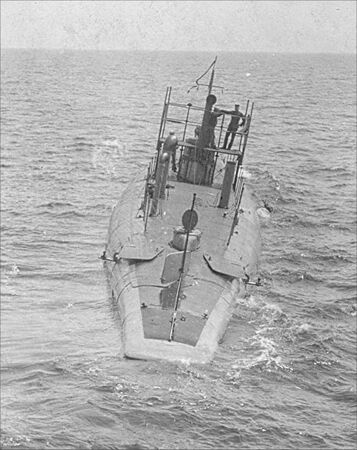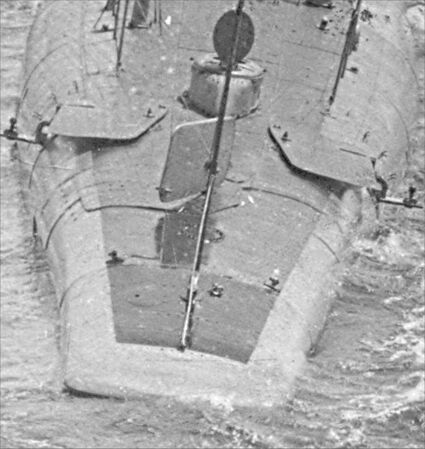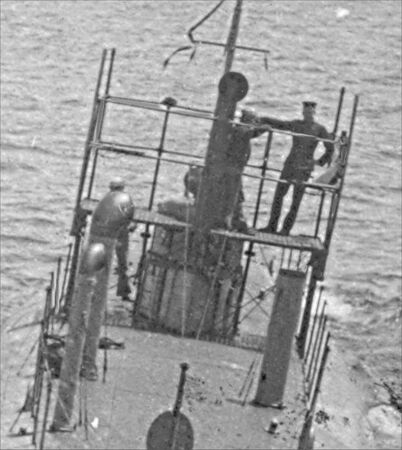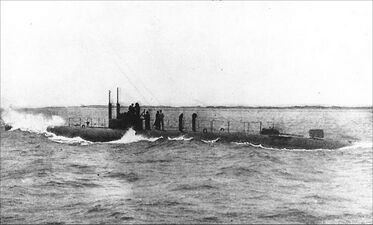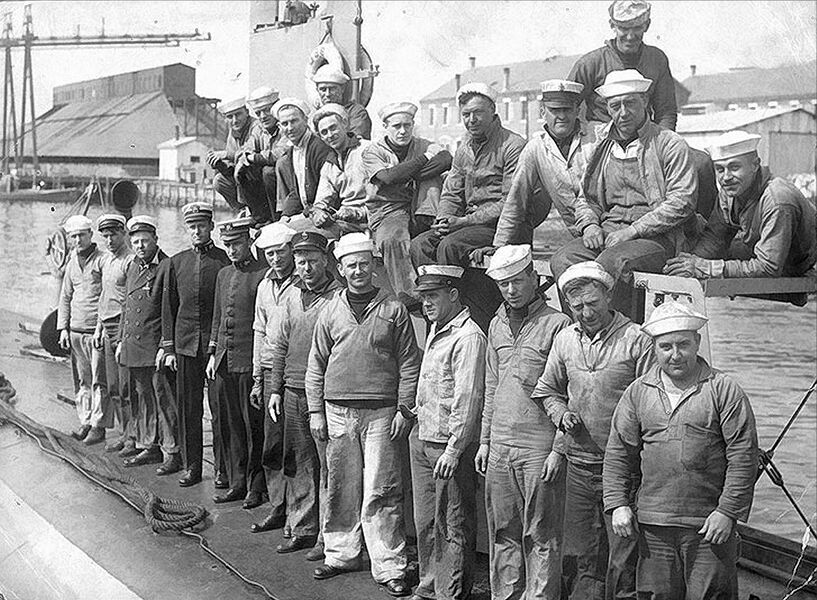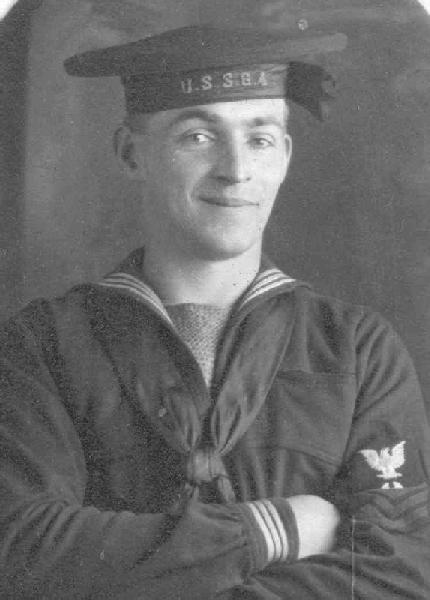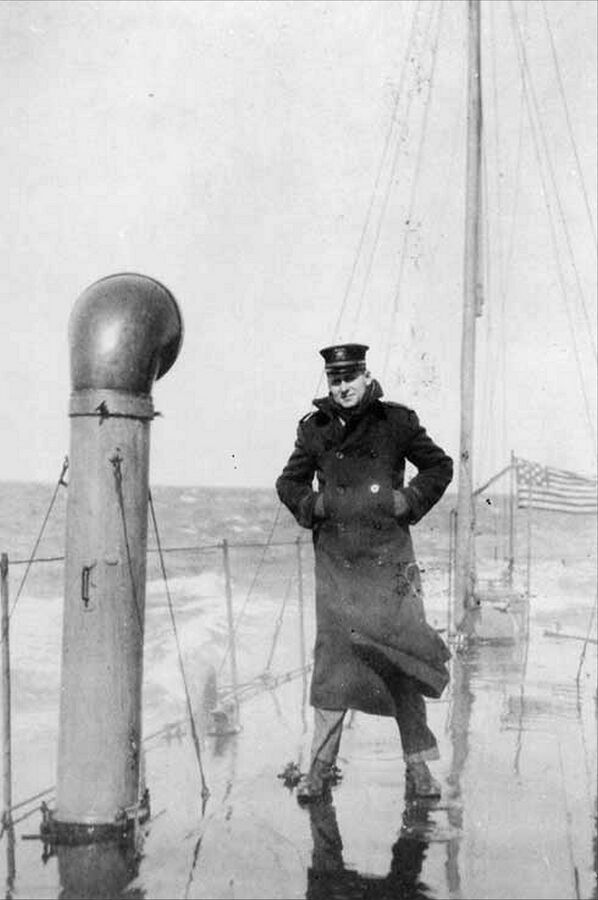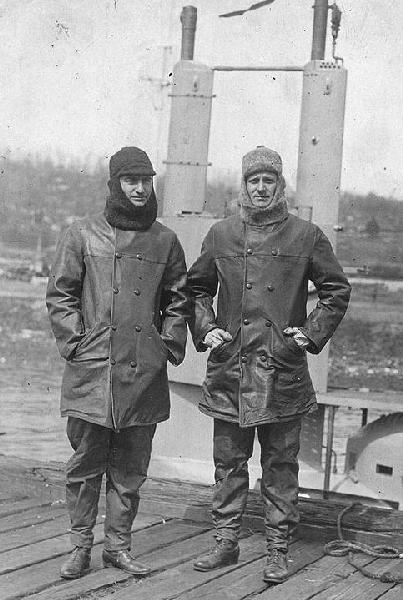G-4


Drawing by Jim Christley, courtesy of Navsource.org
-
G-4 sliding down the ways at the Cramp yard, August 15, 1912. The strange looking bulge seen on the under-body of the bow just to the right of the diagonal brace is the port torpedo tube. Photo NH 103252 courtesy NHHC
-
This photo was taken a few seconds after the one on the left. The stern has become buoyant and is lifting off the launch cradle. She is starting to lean to port, most likely do to improperly calculated buoyancy. Photo NH 73380 courtesy of NHHC.
-
Now with only her bow on the launch cradle, G-4 lists heavily to port. The yard workers topside are scrambling to the starboard side in an attempt to stay aboard. A near disaster was averted and the G-4 eventually floated upright, but we have uncovered anecdotal evidence to suggest several people went over the side and got wet. National Archives photo.
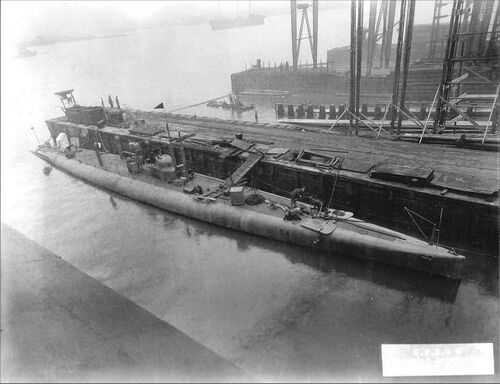
National Archives photo.
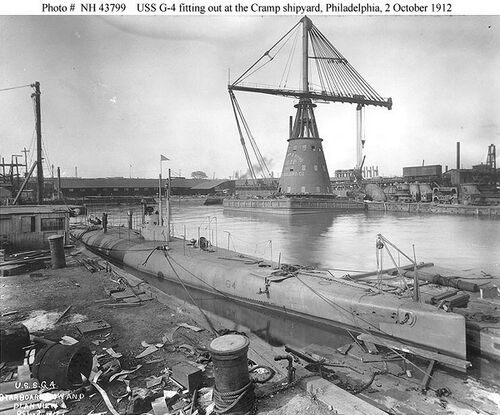
Photo NH 43799 courtesy of the Naval History & Heritage Command.
-
G-4 at sea prior to WW I, approximately 1914. The position of the upper rudder says that the submarine is making a left turn, and this could explain the starboard list.
-
Closeup of the stern, showing details of the topside rudder, folded up stern planes, and the open aft torpedo room hatch.
-
Closeup of the conning tower fairwater and bridge structure. The commissioning pennant is flying from the radio mast. The officer on the right is most likely the boat's Commanding Officer, LT Ernest D. McWhorter, a Navy Cross awardee later in WWI.
Photo from the Rick Larson Collection, now in the private collection of Ric Hedman.
-
G-4 at sea, most likely pre-WW I, circa 1914-15. Note the Allied signal bell on the fore deck aft of the hatch and the upper rudder all the way to the right, behind the two men.
-
G-4 at sea, burying her bow in a head sea, most likely pre-WW I, circa 1914-15. The upper rudder can be clearly seen in this photo.
National Archives photos.
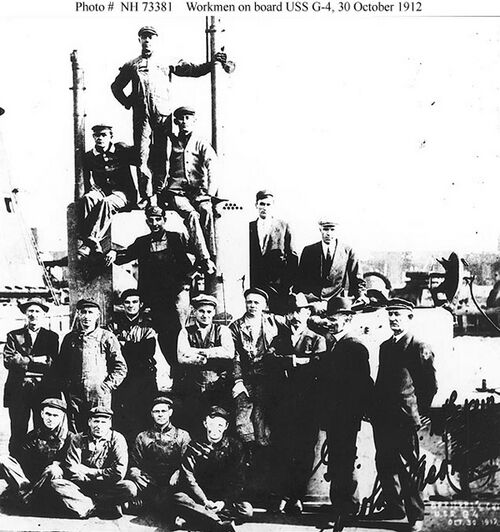
Photo NH 73381 courtesy NHHC.
-
Ship's officers and crew posed on deck, 1917. She was then operating out of Submarine Base New London, CT. The two officers (4th & 5th from left, front row) are Lieutenant (Junior Grade) Paul F. Foster (Commanding Officer) and Lieutenant (Junior Grade) William F. Callaway (Executive Officer). National Archives photo.
-
A G-4 crewman whose name has unfortunately been lost to the ages. He is in his dress blues, wearing the traditional "flat hat" with the G-4 name on it. The rate insignia on his left arm is unclear, but it may be for a Machinist Mate or Motor Machinist Mate 1st Class.
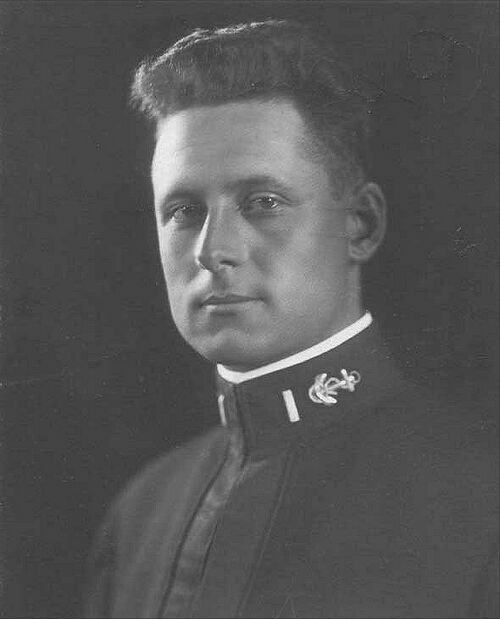
After submarine instruction on board the auxiliary cruiser USS Prairie, he reported on board the G-4. In March 1915, Foster was promoted to Lieutenant Junior Grade and, in early 1916, was given command of G-4.
Relocating to Ireland in December 1917, he was assigned to the submarine tender USS Bushnell (Submarine Tender No. 2) in Bantry Bay, Ireland. Foster was temporarily promoted to Lieutenant in May 1918. While serving in Irish waters, he took command of the submarine L-2 (Submarine No 41). Lieutenant Foster was awarded the Distinguished Service Medal for his role in the sinking of the German submarine UB-65 off the Irish coast on 10 July 1918.
National Archives photo.
-
Photographed on board the submarine G-4, commanding officer Lieutenant (Junior Grade) Paul F. Foster, circa 1915-1916. G-4 looks to be a wet boat on the surface.
-
G-4's officers standing beside their submarine, at Submarine Base New London, CT. in 1917. They are Lieutenant (Junior Grade) William F. Callaway (Executive Officer), at left, and Lieutenant (Junior Grade) Paul F. Foster (Commanding Officer).
National Archives photos.
Page created by:
David Johnston & Ric Hedman
1999 - 2023
PigBoats.COM©
Mountlake Terrace, WA
Norfolk, VA
webmaster at pigboats dot com
